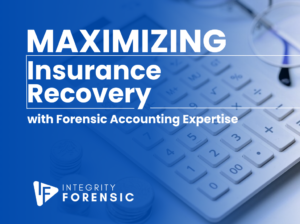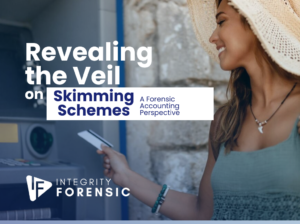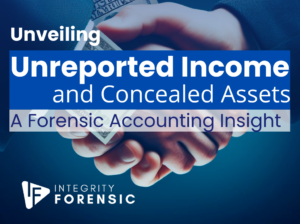In the dynamic landscape of modern business, the specter of fraud looms large, posing a formidable threat that transcends industries and organizational sizes. To counter this menace, the concept of Fraud Risk Assessment emerges as a strategic bastion against the ever-evolving tactics of fraudulent activities. This article aims to demystify the concept while seamlessly integrating the vital role of forensic accounting in bolstering businesses’ defenses.
Unveiling the Complexities of Fraud Risk
Fraud is a shape-shifting adversary, adapting its strategies to exploit vulnerabilities across organizations. From internal malfeasance to intricate financial manipulations, the need for a preemptive, systematic defense strategy has never been more pressing.
Navigating the Terrain of Fraud Risk Assessment
At its essence, Fraud Risk Assessment is a proactive strategy executed by a forensic accountant. It involves a comprehensive evaluation of an organization’s policies and procedures against a benchmark of best practices, such as AS8001-2008. This meticulous review sheds light on areas requiring enhancement and refinement. It then offers guidance and prioritization for these improvements, aiming to fortify the organization’s defenses against potential fraud risks.
The Forensic Accounting Vanguard
Embedded within the realm of Fraud Risk Assessment, forensic accounting emerges as an invaluable ally. Armed with financial expertise, investigative acumen, and cutting-edge technology, forensic accountants become the vanguards against fraudulent activities within an organization. Their roles encompass:
- In-Depth Data Analysis: Utilizing advanced tools, forensic accountants sift through copious data, identifying irregularities and hidden patterns that traditional methods might miss.
- Evaluating Internal Controls: By assessing the organization’s internal controls, forensic accountants pinpoint vulnerabilities that could expose the business to fraudulent actions.
- Scenario Analysis: Leveraging their expertise, forensic accountants analyze potential fraud scenarios, guiding the organization’s preventive strategies.
- Expert Testimony: In cases of legal proceedings arising from fraud allegations, forensic accountants provide expert testimony, bridging the gap between complex financial language and understandable terms for judges and juries.
- Promoting Fraud Awareness: Forensic accountants also conduct training sessions, educating employees about the telltale signs of fraud and empowering them to report suspicious activities.
The Symbiotic Power of Fraud Risk Assessment and Forensic Accounting
When Fraud Risk Assessment joins forces with the proficiency of forensic accounting, organizations gain a robust defense strategy. This collaboration empowers businesses to:
- Detect Anomalies Proactively: Early identification of discrepancies minimizes the risk of unchecked fraudulent activities.
- Strengthen Internal Defenses: Vulnerabilities are addressed, creating an environment that discourages fraudulent behavior.
- Swiftly Address Threats: Timely intervention halts potential fraud from spiraling into a crisis.
- Enhance Legal Defense: Forensic accountants’ insights bolster the organization’s position and integrity during legal battles.
Embracing a Proactive Stance Against Fraud
As the battle against fraud intensifies, a proactive approach becomes imperative. By embracing the fusion of Fraud Risk Assessment and forensic accounting, businesses not only shield their financial well-being and reputation but also showcase their unwavering commitment to ethical practices and transparency. The dynamic synergy of these strategies resonates as a powerful testament to the organization’s resilience in the face of deception, embodying the ethos that fraud has met its match.
At Integrity Forensic, we have a team of experienced forensic accountants to assist you. Call now for a free consultation: 855-673-9999 or send us a message at questions@integrityforensic.com.





